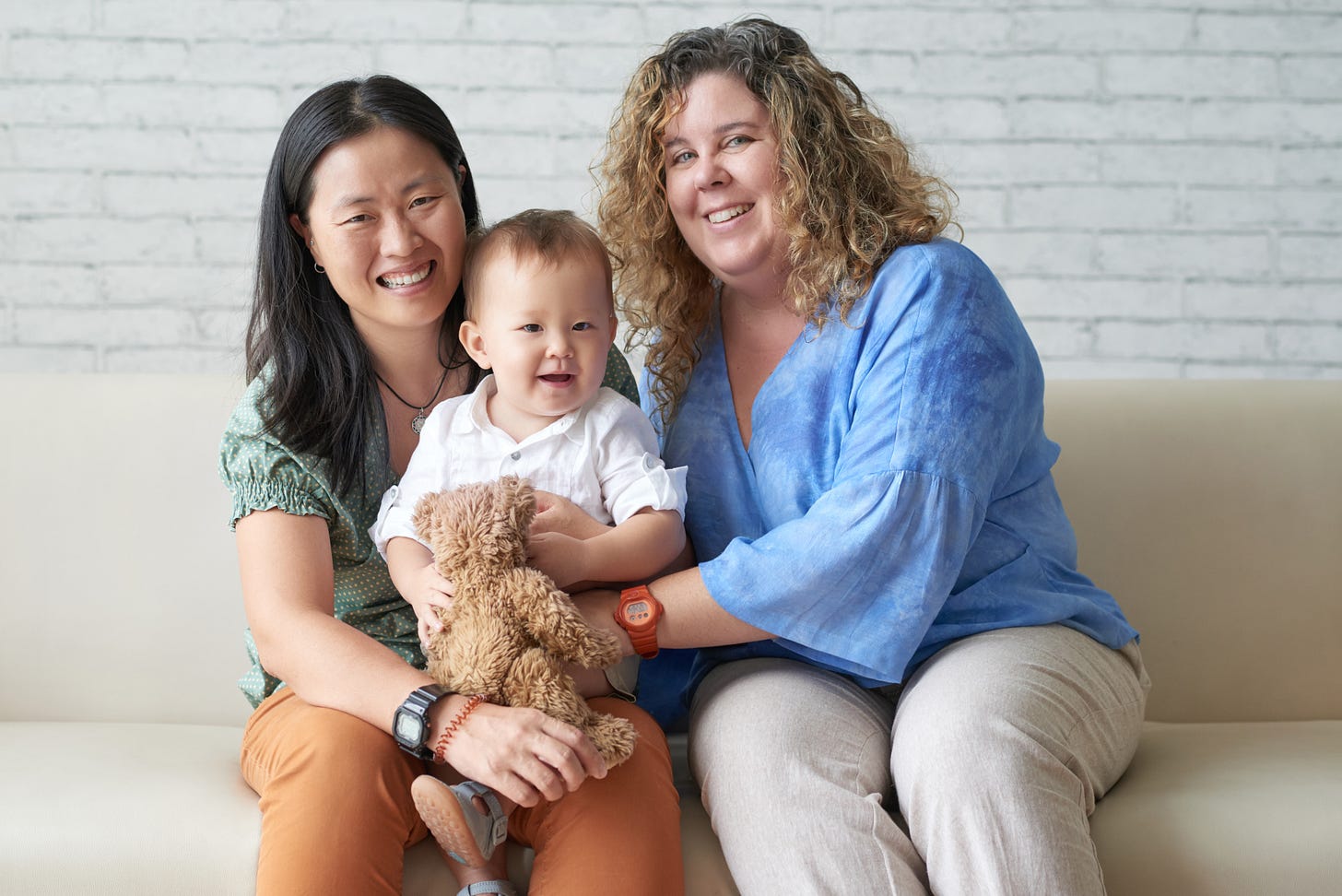Adult offspring of lesbian parents reflect on having been donor conceived
Adult children of lesbian parents largely positive about donor conception, though half report challenges related to unknown donor information and health history (Rothblum, 2024)
Rothblum, E. D., Bos, H. M. W., Koh, A. S., Carone, N., & Gartrell, N. K. (2024). Adult offspring of lesbian parents reflect on having been donor conceived: Feelings about their sperm donor and donor siblings. Couple and Family Psychology: Research and Practice. Advance online publication. https://dx.doi.org/10.1037/cfp0000256
Geographic Region: United States
Research Question: How do adult offspring of lesbian parents conceived via donor insemination (DI) reflect on their conception, sperm donor, and donor siblings?
Research Methods: Qualitative analysis of survey responses as part of the U.S. National Longitudinal Lesbian Family Study (NLLFS). Survey with open-ended questions administered to adult offspring at Wave 7 of the NLLFS.
Sample: 75 adult offspring (ages 30-33) conceived via DI to lesbian parents, surveyed between March 2021 and November 2022. 32% had known their donor since childhood; 36.00% had anonymous donors (of these, 74.07% were still unknown); 32% had open-identity donor (of these, 37% had contacted their donor since age 18)
Analysis Methods: Qualitative analysis of open-ended responses using methods from Magnusson and Marecek (2015)
Key Findings:
When asked about their feelings about DI conception: 49% of responses were positive; 23% were mixed; 22% were neutral or never thought about it; 5.5% were negative.
When asked what made offspring happiest about their DI conception: 50% said DI allowed them or their family to exist; 19.5% mentioned having connections to donor father, donor siblings, or extended family; 7% said DI made them open to social justice; 23% were neutral, unsure, or hadn't experienced happiness due to DI.
When asked about the most challenging aspects of DI: 47% mentioned challenges about the donor or lack of medical/health information; 41% described challenges in childhood, growing up, or feeling different; 14% said nothing was challenging or they hadn't thought about it.
About half had discovered donor siblings.
Limitations: Sample predominantly White and well-educated. Small sample size limited analysis by gender identity. Limited socioeconomic diversity.
Applications:
Clinicians should be prepared to discuss the implications of donor anonymity with adult donor-conceived people.
Parents need support for disclosure decisions and families need support for navigating donor sibling relationships.
Funding Source: Not specified
Regulatory Context:
There are no comprehensive federal laws regulating gamete donation or donor conception in the U.S. The process is largely self-regulated by the fertility industry.
The Food and Drug Administration (FDA) does have some oversight, primarily related to screening and testing of donors for infectious diseases.
The American Society for Reproductive Medicine (ASRM) provides ethical guidelines and recommendations for gamete donation practices. However, these are not legally binding.
There are no legal limits on compensation for donors. A 2011 court ruling (Kamakahi v. ASRM) determined that price caps on donor compensation violate antitrust laws.
ASRM recommends a minimum age of 21 for gamete donors, but this is not legally mandated.
The U.S. does not have laws prohibiting anonymous donation.
Some states have enacted their own laws regarding aspects of assisted reproduction, but these vary widely.
Laws regarding the legal status of donors and intended parents can vary by state.
Lead Author: Esther D. Rothblum is a Distinguished Visiting Scholar at the Williams Institute and Professor of Women’s Studies at San Diego State University. Esther’s research focuses on LGBTQ mental health and relationships.



